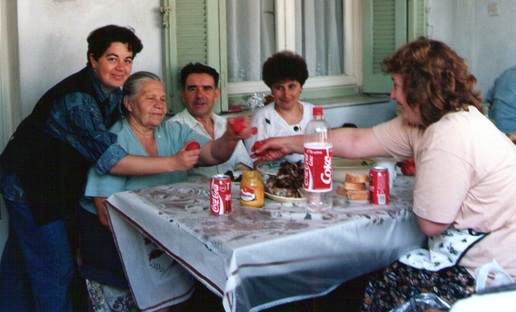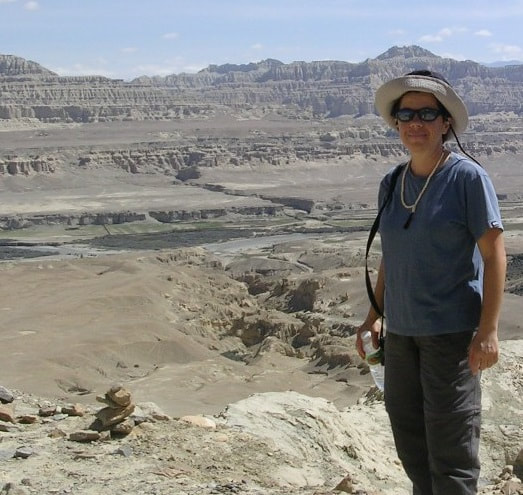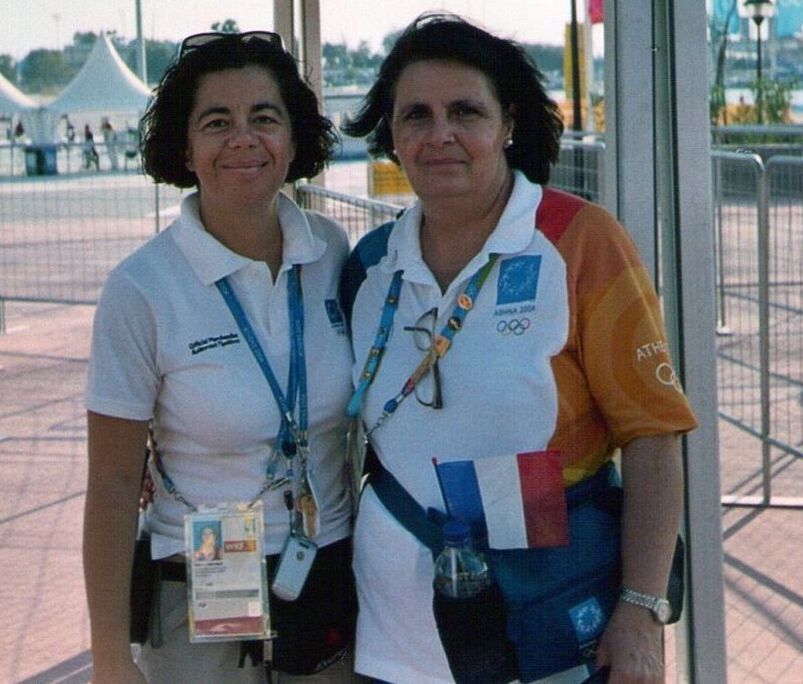|
“You know you should be fasting this week!” says mum. “Why?” I ask, stuffing a chocolate Easter egg into my mouth. “It’s Easter Holy Week. You’re not supposed to eat meat.” “Err… I’m vegetarian,” I remind her. “And no dairy,” she insists, looking at me skeptically as I pour rice milk over my cereal, still unaccustomed to my unorthodox ways. The 40-day fasting period is highlighted on mum’s Greek calendar hanging on the kitchen wall. It signals the start of Lent in the lead up to Greek Easter (15 April this year), which means no meat, fish, eggs, oil or dairy. Only the most pious (ie Greek mums) undertake this strict fast for the entire period, while the rest of us are cajoled to be more or less observant during Holy Week; although you can sometimes get away with just a couple of days (or not at all when you don't live at home). I read this amusing recollection by Nick Giannopoulos (aka the Wog Boy) on his Facebook page last week: “When I was 5yo I remember asking my mum why Greek Jesus was always a week or two after Aussie Jesus. I copped a slap that was heard all over the world. I never asked her or anyone else that question ever again…” Funny, yet true. None of us ever knew why Greek Easter was later than the Australian one, and I’m sure the next generation of Greek kids haven’t got a clue either. So where do you turn to, when your mum won’t answer such questions? The answer, my friend, is Google. There’s more than one calendar? Many Orthodox churches base their Easter date on the Julian calendar, which differs from the Gregorian calendar used by Protestant and Catholic churches. As a result, Greek Easter falls about one to four weeks after the Easter Bunny makes his rounds in the western world. About once every four years both Easters fall on the same date. Confused? All that mattered to us Greek kids in Australia was that we had a double Easter; we’d devour all our chocolate Easter eggs just before our mums curtailed their cooking repertoire in line with fasting requirements during Holy Week. After the delirious chocolate frenzy, we all survived on jam sandwiches for school that week. What happens at Greek Easter? Instead of chocolate eggs, Greek homes abound with red dyed eggs (symbolising the blood of Christ), koulourakia (shortbread biscuits) and tsoureki (a type of Easter bread), available to desperately deprived kids only after the enforced fast ends on Easter Saturday. Good Friday is a day of mourning and churches usually ring out the death toll throughout the morning. The evening church service features a subdued procession through the streets carrying the epitaph, or coffin, with the congregation following behind it. The Anastasi (the Resurrection), takes place at midnight on Easter Saturday and is the culmination of Holy Week. Churches are jam-packed from 11pm for the service and the lighting of the Holy Flame at midnight. Most people then rush home for the traditional magiritsa (a creamy, lemony soup made from lamb sweetmeats) to celebrate the end of the fast. Mum stopped making it years ago as us kids refused to eat it. Liver soup… blah! The feasting frenzy resumes on Easter Sunday. While some continue the custom of having a lamb on the spit, you can also find a selection (usually all) of the following on the BBQ: souvlaki, pork chops or fish. Of course, there's a variety of salads on offer, as well as an eclectic oversupply of desserts. The emphasis, here, is on abundant food (to make up for the fasting period, I’m sure). This not only encourages gluttony, but inevitably leads to indigestion, heart burn, loosening the top two buttons on your pants, to be followed by a long siesta. Health experts will be having a coronary. (Just think, this performance is also repeated at Christmas!) A traditional Easter egg game I’m afraid Greeks don’t do Easter egg hunts. That’s an Aussie thing. Instead, each person takes a dyed red egg and tries to crack another person’s egg. (This game symbolizes Jesus Christ breaking from his tomb). The person whose egg lasts the bombardment is assured good luck for the rest of the year. Warning: if you cheat by using several eggs, you’ll be expected to eat them. Now, before you all rush over to my place, please note that I don’t prepare any of the abovementioned Greek delicacies. Seriously, Greek mothers spend the entire Holy Week cooking! No wonder they’re exhausted by Easter Sunday. I’m more of the Quick and Easy Cooking School of Thought. And I eat in moderation these days. KALO PASCHA! Happy Greek Easter.
9 Comments
Robyn N
11/4/2012 11:19:48 am
Fascinating cross cultural stuff!!!
Reply
Hari Kotrotsios
11/4/2012 11:27:44 am
Hi Robyn - I've got a much clearer perspective of it these days than when I was a child caught in the middle of two cultures!
Reply
Hari Kotrotsios
11/4/2012 11:35:54 am
Thanks Bernie! Hope you enjoyed your Aussie Easter last Sunday.
Reply
Jenny Duckworth
15/4/2012 01:25:20 pm
It must be great to be able to take an active part in two cultures.
Reply
Hari Kotrotsios
16/4/2012 02:41:52 am
Hi Jenny, as kids we were caught between the two cultures and most of us rebelled against our own one! It's only later in life that we come to appreciate the benefits of having both. I fully support letting kids share all cultures, rather than restricting them to one.
Reply
Coral McVean
23/5/2012 02:53:23 pm
Hadn't realised that Greeks celebrated Easter at a different time from us .Thanks for the info about the 2 cultures
Reply
Hari Kotrotsios
24/5/2012 02:03:25 pm
Always happy to share our cultural highlights, Coral!
Reply
20/8/2012 02:42:39 am
Great site, was just reading and doing some work when I found this page
Reply
Your comment will be posted after it is approved.
Leave a Reply. |
 Portuguese Camino 2019 Portuguese Camino 2019
Travel blogs
New Zealand 2008 Tibet 2007 New Zealand 2006 Melbourne 2006 United Kingdom 2004 Athens Olympics 2004 Peru 2003 Beijing to Athens 1994 Nepal 1991 Categories
All
Archives
December 2019
|
|
I acknowledge the traditional Custodians of the land on which I work and live, the Gubbi Gubbi / Kabi Kabi and Joondoburri people, and recognise their continuing connection to land, the waters and sky. I pay my respect to them and their cultures; and to Elders past, present and emerging.
|
© 2024 HARI KOTROTSIOS
|



